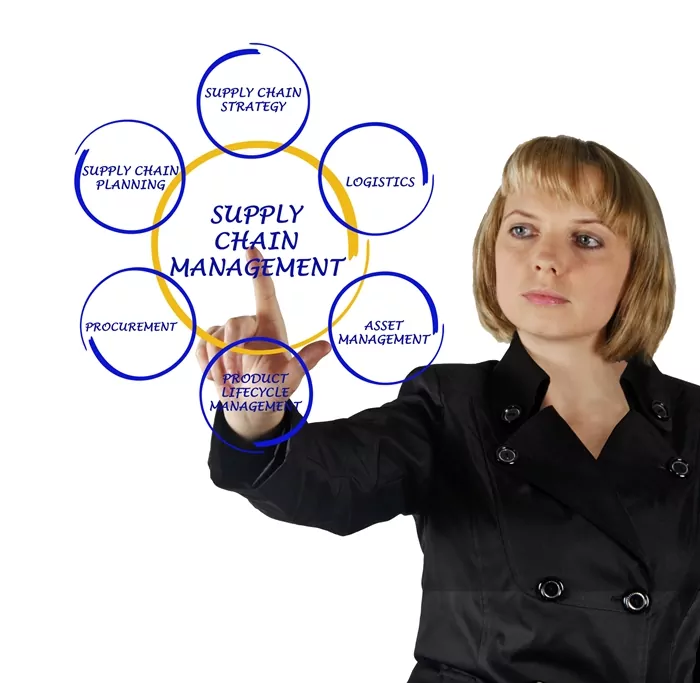Supplier Relationship Management: Enhancing Business Efficiency and Collaboration
Introduction
Brief Overview of Supplier Relationship Management (SRM)
Supplier Relationship Management (SRM) is a strategic approach to managing a company’s interactions with its suppliers. SRM focuses on fostering and maintaining positive, productive relationships with suppliers to enhance the overall supply chain performance. It involves systematic management of supplier interactions to optimize the value delivered through these relationships. SRM encompasses various activities, including supplier selection, performance evaluation, risk management, and collaboration enhancement.
Importance of SRM in Modern Business Operations
In today's competitive and globalized market, SRM has become a critical component of business operations. Effective SRM helps businesses achieve several key objectives, such as cost reduction, risk mitigation, quality improvement, and innovation. By building strong relationships with suppliers, companies can ensure a reliable supply of high-quality materials and services, which is essential for maintaining operational efficiency and meeting customer demands. Moreover, SRM enables companies to collaborate with suppliers on new product development and process improvements, driving innovation and competitive advantage. The proactive management of supplier relationships also helps mitigate risks associated with supply chain disruptions, regulatory compliance, and market fluctuations, ensuring business continuity and stability.
Purpose of the Blog Post
The purpose of this blog post is to explain how SRM can enhance business efficiency and collaboration. It aims to provide insights into the benefits of SRM, including improved supply chain performance, cost savings, and risk management. The post will also explore key strategies and best practices for implementing effective SRM, such as regular performance reviews, transparent communication, and strategic partnership development. By understanding and leveraging SRM, businesses can optimize their supply chain operations, foster innovation, and build stronger, more resilient supplier networks. This blog post will serve as a valuable resource for business leaders and procurement professionals looking to enhance their supplier relationships and achieve greater operational success.
What is Supplier Relationship Management (SRM)?
Definition of SRM
Supplier Relationship Management (SRM) is a systematic approach to assessing suppliers' contributions and capabilities, managing supplier relationships strategically, and maximizing the value obtained from those relationships. SRM focuses on developing a mutually beneficial partnership between a company and its suppliers, aiming to streamline processes, reduce costs, and foster innovation within the supply chain.
Key Objectives of SRM
-
Cost Reduction: By optimizing supplier interactions and negotiations, companies can achieve significant cost savings through better pricing, volume discounts, and streamlined processes.
-
Quality Improvement: SRM ensures that suppliers meet the required standards and continuously improve the quality of goods and services provided.
-
Risk Mitigation: Effective SRM identifies potential risks in the supply chain and implements strategies to mitigate them, ensuring business continuity and reducing vulnerability to disruptions.
-
Innovation and Collaboration: SRM encourages collaboration with suppliers on product development and process improvements, driving innovation and gaining a competitive edge.
-
Sustainability: SRM promotes sustainable practices by working with suppliers to adopt environmentally friendly and socially responsible methods.
Historical Context and Evolution of SRM Practices
The concept of SRM has evolved significantly over the past few decades. Traditionally, supplier management was primarily transactional, focusing on procurement and cost reduction. However, as global supply chains became more complex and competitive, the need for a strategic approach to supplier management emerged.
In the 1980s and 1990s, the focus shifted towards Total Quality Management (TQM) and Just-In-Time (JIT) inventory practices, emphasizing the importance of supplier quality and reliability. The early 2000s saw the rise of strategic sourcing and the recognition of suppliers as critical stakeholders in achieving business objectives.
Today, SRM is an integral part of supply chain management, leveraging technology and data analytics to enhance supplier performance and collaboration. Modern SRM practices involve sophisticated tools for supplier performance monitoring, risk assessment, and relationship management, ensuring that companies can derive maximum value from their supplier networks.
In conclusion, SRM is a dynamic and strategic approach to managing supplier relationships, aimed at optimizing supply chain efficiency, reducing costs, and fostering innovation. Its evolution reflects the growing complexity and importance of supplier networks in achieving business success.
Key Components of Supplier Relationship Management (SRM)
Supplier Segmentation
Supplier segmentation is the process of categorizing suppliers based on their importance to the business. This allows companies to tailor their management strategies according to the value and risk each supplier presents. High-value or strategic suppliers receive more focus and resources, while transactional suppliers are managed with standard procedures. Effective segmentation ensures that resources are allocated efficiently, and relationships with key suppliers are nurtured to drive mutual growth and innovation.
Supplier Performance Management
Supplier performance management involves continuously monitoring and evaluating suppliers' performance against agreed-upon criteria such as quality, delivery times, cost, and service. This component includes setting clear performance metrics, conducting regular reviews, and providing feedback. By identifying areas for improvement and recognizing high-performing suppliers, companies can enhance overall supply chain efficiency, ensure compliance with standards, and foster a culture of continuous improvement.
Communication and Collaboration
Effective communication and collaboration are vital for successful SRM. This involves establishing clear channels of communication, maintaining transparency, and fostering open dialogue between the company and its suppliers. Collaborative tools and platforms can facilitate information sharing, joint planning, and problem-solving. Strong communication and collaboration help build trust, align objectives, and enable coordinated efforts to innovate and respond to market changes swiftly.
Risk Management
Risk management in SRM focuses on identifying, assessing, and mitigating risks within the supply chain. This includes evaluating suppliers' financial stability, geopolitical factors, and potential disruptions due to natural disasters or other unforeseen events. By developing risk mitigation strategies, such as diversifying the supplier base or creating contingency plans, companies can reduce vulnerability and ensure supply chain resilience.
Contract Management
Contract management involves the creation, negotiation, execution, and monitoring of supplier contracts to ensure that terms and conditions are met. Effective contract management helps in setting clear expectations, managing compliance, and addressing any issues that arise during the contract term. It also involves handling contract renewals and terminations efficiently. Proper contract management safeguards the company’s interests, promotes fair dealings, and enhances the overall supplier relationship.
In conclusion, the key components of SRM—supplier segmentation, supplier performance management, communication and collaboration, risk management, and contract management—work together to optimize supplier relationships and drive business success. By focusing on these areas, companies can enhance supply chain efficiency, reduce risks, and foster innovation through strategic partnerships.
Benefits of Supplier Relationship Management (SRM)
Enhanced Efficiency
SRM enhances operational efficiency by streamlining procurement processes and fostering better coordination between companies and their suppliers. By implementing efficient communication channels and collaborative tools, companies can reduce lead times, minimize delays, and improve supply chain responsiveness. This leads to smoother operations, cost savings, and the ability to quickly adapt to changing market demands.
Improved Quality
Through SRM, companies can work closely with suppliers to maintain and enhance the quality of goods and services. Regular performance evaluations and feedback loops ensure that suppliers adhere to stringent quality standards. This continuous monitoring and improvement process results in higher product quality, fewer defects, and increased customer satisfaction. By prioritizing quality, companies can build a reputation for reliability and excellence.
Innovation and Growth
SRM fosters a collaborative environment where suppliers and companies work together to innovate. By engaging suppliers in the early stages of product development and leveraging their expertise, companies can create new and improved products and services. This collaborative innovation can lead to competitive advantages and new market opportunities. Additionally, strategic partnerships with key suppliers can drive growth through joint ventures, co-development initiatives, and shared technology advancements.
Risk Reduction
Effective SRM includes robust risk management practices that help identify and mitigate potential supply chain risks. By diversifying the supplier base, monitoring supplier performance, and developing contingency plans, companies can reduce their exposure to risks such as supply disruptions, financial instability, and compliance issues. Proactive risk management ensures business continuity and protects the company from unforeseen challenges.
Strategic Advantage
SRM provides a strategic advantage by creating stronger, more resilient supplier relationships. Companies that invest in SRM can differentiate themselves through superior supply chain performance, faster time-to-market, and better overall service levels. This strategic edge enables companies to respond more effectively to competitive pressures, changing customer preferences, and market trends. By aligning supplier capabilities with business objectives, companies can achieve long-term strategic goals and sustain growth.
In conclusion, the benefits of SRM—enhanced efficiency, improved quality, innovation and growth, risk reduction, and strategic advantage—are integral to modern business success. By leveraging SRM, companies can optimize their supply chain operations, foster innovation, mitigate risks, and gain a competitive edge in the market.
Strategies for Effective Supplier Relationship Management (SRM)
Developing a SRM Framework
Creating a structured SRM framework is the foundation for effective supplier relationship management. This framework should outline clear processes for supplier segmentation, performance evaluation, risk management, and communication. By establishing standardized procedures and criteria, companies can ensure consistency and efficiency in managing supplier relationships. A well-defined SRM framework also facilitates better alignment of supplier capabilities with business goals, ensuring that all stakeholders understand their roles and responsibilities.
Investing in Technology
Leveraging advanced technology is crucial for modern SRM. Implementing SRM software and platforms can automate routine tasks, provide real-time data, and enhance decision-making. These technologies facilitate seamless communication, enable detailed performance tracking, and support comprehensive risk analysis. By investing in technology, companies can streamline their SRM processes, gain deeper insights into supplier performance, and foster more collaborative and responsive supplier relationships.
Training and Development
Ongoing training and development are essential for both internal teams and suppliers. Training procurement and supply chain teams on SRM best practices, negotiation skills, and technological tools can significantly enhance their effectiveness. Similarly, providing suppliers with training on compliance requirements, quality standards, and collaborative practices can improve their performance and alignment with company expectations. Investing in training and development builds a knowledgeable and capable workforce that can manage supplier relationships more effectively.
Building Trust and Transparency
Trust and transparency are the cornerstones of strong supplier relationships. Companies should strive to establish open communication channels and foster a culture of mutual respect and collaboration. Regular meetings, clear expectations, and honest feedback help build trust and ensure that both parties are aligned towards common goals. Transparency in dealings, such as sharing business plans and performance metrics, reinforces trust and encourages suppliers to invest in the relationship.
Continuous Improvement
Adopting a continuous improvement mind-set is vital for sustaining effective SRM. Companies should regularly review and refine their SRM strategies based on performance data and feedback from suppliers. Implementing continuous improvement initiatives, such as Kaizen or Six Sigma, can help identify areas for enhancement and drive ongoing innovation. By fostering a culture of continuous improvement, companies can maintain high standards, adapt to changing market conditions, and stay ahead of the competition.
In conclusion, strategies for effective SRM—developing a robust SRM framework, investing in technology, focusing on training and development, building trust and transparency, and committing to continuous improvement—are essential for optimizing supplier relationships. These strategies enable companies to enhance efficiency, mitigate risks, and foster innovation, ultimately driving business success and competitive advantage.
Case Studies of Successful Supplier Relationship Management (SRM) Implementation
Examples of Companies That Have Excelled in SRM
Several companies have demonstrated excellence in Supplier Relationship Management, including Toyota, Procter & Gamble (P&G), and IBM. These organizations have leveraged SRM to enhance their supply chain efficiency, foster innovation, and maintain competitive advantage.
Key Strategies and Outcomes from Their SRM Initiatives
Toyota
Toyota's SRM strategy focuses on building long-term partnerships with suppliers through a collaborative approach known as "Keiretsu." This involves close integration with suppliers, sharing technology, and co-developing products. The outcome has been a highly efficient supply chain, improved product quality, and continuous innovation. Toyota's suppliers are treated as partners, which has led to mutual growth and resilience against market fluctuations.
Procter & Gamble (P&G)
P&G emphasizes transparency and joint value creation in its SRM approach. The company invests in technology to facilitate real-time data sharing and communication with suppliers. P&G also conducts regular supplier summits to align on strategic goals and co-develop innovative solutions. As a result, P&G has achieved significant cost savings, enhanced product quality, and accelerated time-to-market for new products.
IBM
IBM's SRM focuses on rigorous performance management and strategic collaboration. IBM utilizes advanced analytics to monitor supplier performance and identify improvement areas. The company engages in regular dialogue with suppliers, fostering an environment of continuous improvement and innovation. This approach has enabled IBM to maintain high standards of quality, reduce risks, and drive technological advancements.
Lessons Learned from These Case Studies
-
Long-Term Partnerships: Building and nurturing long-term relationships with suppliers can lead to mutual growth and sustained competitive advantage.
-
Transparency and Communication: Open communication and transparency are critical for aligning goals, fostering trust, and achieving joint success.
-
Investing in Technology: Leveraging advanced technologies for real-time data sharing and performance monitoring enhances SRM effectiveness.
-
Collaborative Innovation: Engaging suppliers in the innovation process leads to better product development and improved market responsiveness.
-
Continuous Improvement: Regularly reviewing and refining SRM strategies based on performance data and feedback drives ongoing enhancements and efficiency gains.
In conclusion, the successful implementation of SRM by companies like Toyota, P&G, and IBM underscores the importance of strategic collaboration, transparency, technology investment, and a focus on continuous improvement. These lessons provide valuable insights for other organizations aiming to optimize their supplier relationships and achieve superior business outcomes.
Challenges in Supplier Relationship Management (SRM)
Common Obstacles and How to Overcome Them
Resistance to Change
One of the major obstacles in implementing SRM is resistance to change within the organization and among suppliers. Employees and suppliers may be accustomed to traditional ways of working and sceptical of new processes. Overcoming this challenge requires effective change management strategies, including clear communication about the benefits of SRM, providing training, and involving stakeholders in the transition process. Demonstrating quick wins and tangible benefits can also help in reducing resistance and gaining buy-in.
Data Management Issues
Managing and analysing supplier data can be complex, especially when dealing with large volumes of information from multiple sources. Inconsistent data formats and lack of integration between systems can hinder effective SRM. Companies can overcome this by investing in robust SRM software that integrates seamlessly with existing systems, ensuring accurate and real-time data management. Regular audits and data cleansing activities are also essential to maintain data integrity and reliability.
Strategies for Dealing with Difficult Supplier Relationships
Dealing with difficult suppliers requires a proactive and diplomatic approach. Establishing clear expectations and maintaining open communication can help address issues before they escalate. Regular performance reviews and feedback sessions allow for constructive discussions and problem-solving. If conflicts arise, it’s important to approach them with a collaborative mind-set, seeking mutually beneficial solutions. In extreme cases, having a well-defined exit strategy and alternative suppliers can ensure continuity and minimize disruption.
Ensuring Compliance and Ethical Practices in the Supply Chain
Ensuring compliance with regulations and ethical standards is a critical aspect of SRM. Companies must establish clear policies and guidelines for supplier conduct, including adherence to labour laws, environmental regulations, and anti-corruption measures. Conducting regular audits and assessments helps verify compliance and identify areas for improvement. Collaboration with suppliers to address compliance issues and promote ethical practices is essential. Transparency and accountability are key, with companies needing to set the example and foster a culture of integrity throughout the supply chain.
Conclusion
In conclusion, while SRM presents several challenges, including resistance to change, data management issues, difficult supplier relationships, and ensuring compliance, these obstacles can be effectively managed through strategic approaches. Clear communication, robust technology, proactive relationship management, and a strong focus on compliance and ethics are crucial for overcoming these challenges and achieving successful SRM. By addressing these issues head-on, companies can optimize their supplier relationships and drive sustainable business success.
Future Trends in Supplier Relationship Management (SRM)
Impact of Emerging Technologies
Emerging technologies like artificial intelligence (AI) and block chain are transforming SRM. AI enhances supplier management by providing advanced analytics, predictive insights, and automation of routine tasks. It helps in identifying patterns, forecasting supply chain disruptions, and optimizing supplier performance. Block chain technology ensures transparency and security in transactions, creating immutable records of every transaction and movement in the supply chain. This enhances trust and accountability, reducing the risk of fraud and ensuring compliance with contractual terms.
Increasing Focus on Sustainability and Ethical Sourcing
Sustainability and ethical sourcing are becoming paramount in SRM. Companies are under increasing pressure to ensure their supply chains are environmentally friendly and socially responsible. This involves not only compliance with environmental regulations but also active efforts to reduce carbon footprints and promote fair labour practices. SRM strategies now prioritize working with suppliers who adhere to sustainable practices. This trend is driven by consumer demand for ethical products and regulatory requirements. Companies are adopting sustainability metrics and integrating them into their SRM frameworks to assess and improve supplier sustainability performance.
Trends in Supplier Collaboration and Innovation
Supplier collaboration is evolving from transactional relationships to strategic partnerships focused on innovation. Companies are increasingly involving suppliers in the early stages of product development to leverage their expertise and foster co-innovation. This trend is facilitated by digital collaboration platforms that enable seamless communication and joint problem-solving. By creating an ecosystem of innovation, companies can bring products to market faster and more efficiently. Additionally, there is a growing emphasis on building resilient supply chains through strategic alliances, ensuring agility and flexibility in responding to market changes and disruptions.
Conclusion
In conclusion, the future of SRM is being shaped by cutting-edge technologies like AI and block chain, which enhance efficiency and transparency. The focus on sustainability and ethical sourcing is becoming integral to SRM strategies, driven by consumer expectations and regulatory pressures. Furthermore, the trend towards deeper supplier collaboration fosters innovation and supply chain resilience. By embracing these trends, companies can optimize their supplier relationships, drive sustainable growth, and maintain a competitive edge in the evolving business landscape.
Conclusion
Supplier Relationship Management (SRM) plays a pivotal role in modern business operations, offering substantial benefits and driving efficiency and collaboration within supply chains.
Recap of the Importance and Benefits of SRM
SRM is crucial for optimizing supplier relationships, ensuring supply chain resilience, and achieving operational excellence. By strategically managing supplier interactions, companies can enhance efficiency, reduce costs, and improve product quality. SRM also fosters innovation through collaborative partnerships, driving continuous improvement and maintaining competitive advantage in dynamic markets.
Final Thoughts on the Role of SRM
In today's interconnected global economy, effective SRM is more critical than ever. It enables businesses to mitigate risks, respond swiftly to market changes, and capitalize on opportunities for growth. Beyond operational benefits, SRM promotes trust and transparency in supplier relationships, laying the foundation for long-term partnerships based on mutual success and shared goals. Moreover, by integrating sustainability practices and ethical sourcing into SRM strategies, companies can meet consumer expectations, comply with regulations, and contribute positively to society and the environment.
Call to Action: Encouraging Businesses to Invest in Effective SRM Practices
I encourage businesses to prioritize and invest in robust SRM practices. This involves developing clear SRM frameworks, leveraging advanced technologies for data-driven insights and automation, and fostering a culture of collaboration and innovation with suppliers. By committing to continuous improvement and embracing emerging trends such as AI and sustainability, companies can future-proof their supply chains and achieve sustainable business success.
In conclusion, SRM is not just about managing suppliers; it is about cultivating strategic partnerships that drive business efficiency, enhance collaboration, and create value across the supply chain. Embracing SRM as a core business strategy will enable companies to navigate complexities, seize opportunities, and thrive in an increasingly competitive global marketplace.




